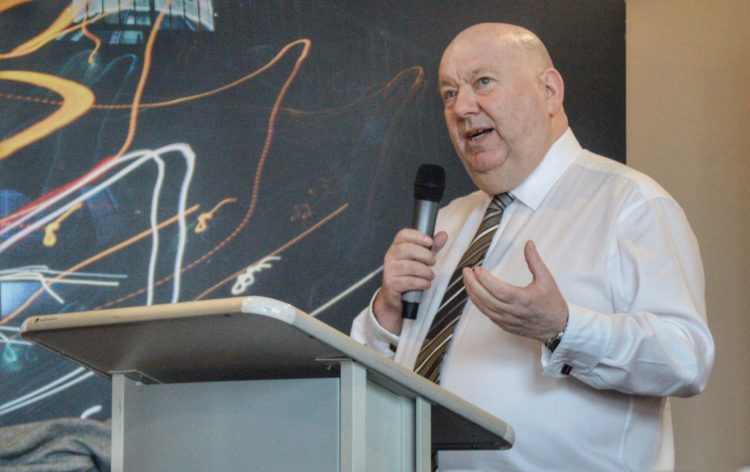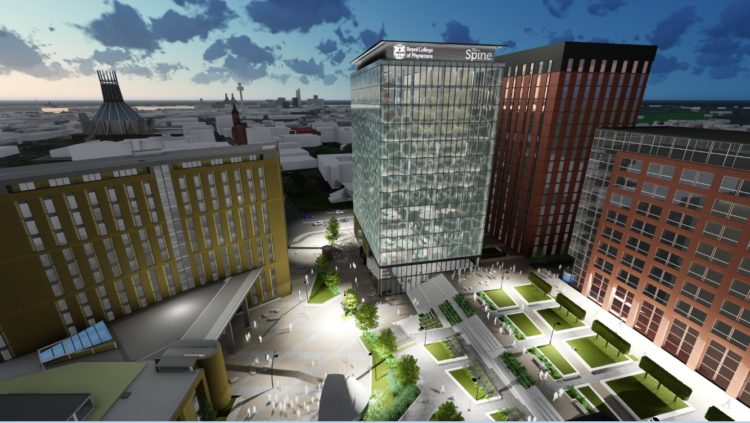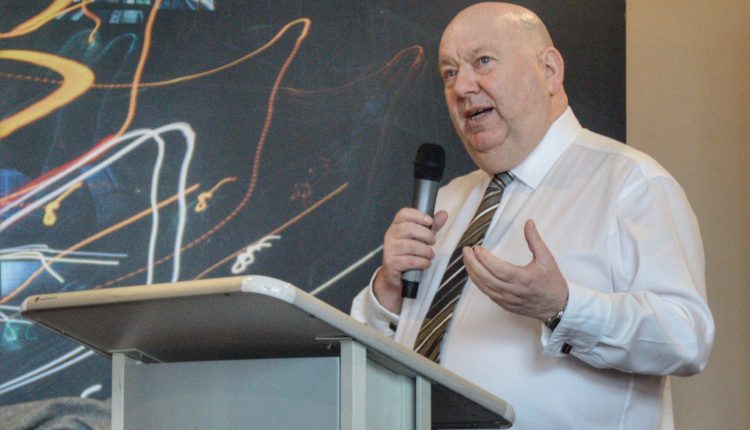Joe Anderson says the five-year programme would provide a a £5bn economic boost to Liverpool and see the building of 3,000 new low carbon homes. Tony McDonough reports

Liverpool Mayor Joe Anderson is asking new Prime Minister Boris Johnson to approve a new £230m post-Brexit ‘Green City Deal’ to build 3,000 new homes and create 10,000 jobs.
Mr Anderson claims the five-year programme would provide a a £5bn economic boost to Liverpool while focusing on making the city carbon neutral, while also delivering jobs, clean air, better health, smarter travel, green spaces and warm and cheap-to-heat homes.
The vision is designed to shift the trajectory of the city’s economy in response to climate change whilst achieving clean inclusive growth, opportunities for everyone in Liverpool and securing a long-term sustainable “city for the future”.
Skills push
As well as the 10,000 new jobs it would support a major skills push with the creation of 4,000 apprenticeships and support a further 35,000 people into work and training.
Backed by businesses and trade union UNITE, it also aims to create economic opportunities with skills education which will allow workers of all ages to find employment in new industries created by a cleaner, greener economy. Highlights of the proposal include:
- 3,000 new low carbon homes and further 3,000 existing homes retrofitted to modern low carbon standards. A third of the new and refurbished properties would be council houses.
- Incentives and measures to encourage and enable the uptake of retrofitting by homeowners and landlords.
- Training a new generation of engineers, designers and installers to meet the needs of the sector as well as developing new technologies and supporting the growth of a new wave of green businesses.
- Developing a “clean growth” vocational training hub focused on delivering post-16 provision and adult skills with employers and trades unions.
- The establishment of a Liverpool Mutual Bank to help people on to the housing ladder and support SMEs, particularly those in the green sector, to start up or expand.
- Innovation in green and digital infrastructure including developing a business case for driverless vehicles that can connect the area to the city centre.
Carbon neutral
It also includes a proposal to make the £1 billion Paddington Village development as an exemplar for air quality with the best carbon neutral infrastructure and transport, including the possible use of driverless vehicles to link it to the city centre.
READ MORE: Liverpool’s finances in a worst state than in the 1980s, claims leading academic
It would be the second City Deal that Mayor Anderson has negotiated with the Government – the first in 2012 exceeded its targets for building new schools and houses and creating jobs as well as establishing five Mayoral Development Zones.
The city has already been in talks with various Government departments, investors and trade unions about its ideas, and the plan draws them all together into one joined-up proposal.

Bold and radical
The Mayor said: “We need to be bold, radical and ambitious if we are to meet our target of becoming a net zero carbon city by 2030.
“There are huge opportunities for us to improve the lives of all residents across the city, whatever their age or background, with better and more energy efficient housing, use of smart technology and making sure our young people have the right skills to take advantage of the jobs in these growth sectors.
“This proposed City Deal centres on positioning Liverpool as the go-to place for clean technology investment, training and job creation through an inclusive and sustainable growth strategy.
“This is the right moment for us to be working up a serious bid to Government, as the new Prime Minister will be looking closely at how best to support the country’s economy following Brexit, which he is clear will be at the end of October.”

